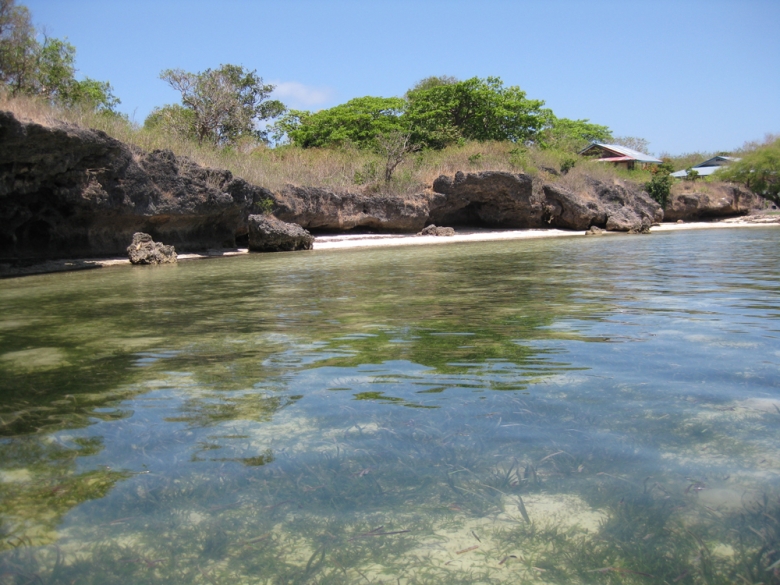Component 1 - Quantifying the value & market potential of coral reef & mangrove ecosystem services

Seagrass meadows provide habitat for juvenile fish (G Sheehan)
Component 1 of CCRES aims to quantify the value and market potential of coral reef and mangrove ecosystem services.
CCRES will fill key knowledge gaps on how developing world coastal communities can sustainably capture the benefits provided by ecosystem services while improving the governance of natural resources by facilitating their inclusion in systems of national accounts. Studies will ascertain the degree to which wise management of coral reefs can mitigate challenges confronting food security and provide opportunities for diversified livelihoods.
CCRES aims to push the ecosystem service frontier forward, applying existing knowledge and filling critical gaps in order to demonstrate how ecosystem services can be meaningfully valued and sustainably managed to deliver ongoing benefits to local communities.
Key activities in Component 1 are:
Valuing ecosystem services
Calculating the value of services (including reef fisheries, ecotourism, coastal defence, blue carbon sequestration and storage, and water filtration for human and ecosystem health). The project will focus on those services that address policy needs in the East-Asia Pacific region.
Mapping the distribution of ecosystem service benefits
To support appropriate ecosystem service management decisions, especially those that are targeted to alleviate poverty, it is necessary to understand where service providers and beneficiaries are located; who these groups are and their socio-economic and demographic characteristics; how access to ecosystem service benefits is mitigated by institutions and governance; and how institutional and governance changes impact on human wellbeing.
Marine spatial planning
Marine spatial planning provides decision support for community-based resource management, explicitly considering the trade-offs that exist in environments where resources are used in multiple ways. Engaging with the local community, CCRES will determine how local businesses (both pre-existing and new) can operate within the same coastal landscape, and ensure that the ecosystems are sustainably managed to deliver ongoing benefits to local communities. CCRES will demonstrate how to integrate maps of ecosystem service flow, priority sites for marine reserves designation, and the requirements of sustainable businesses which rely on coastal ecosystems and the services they provide.



